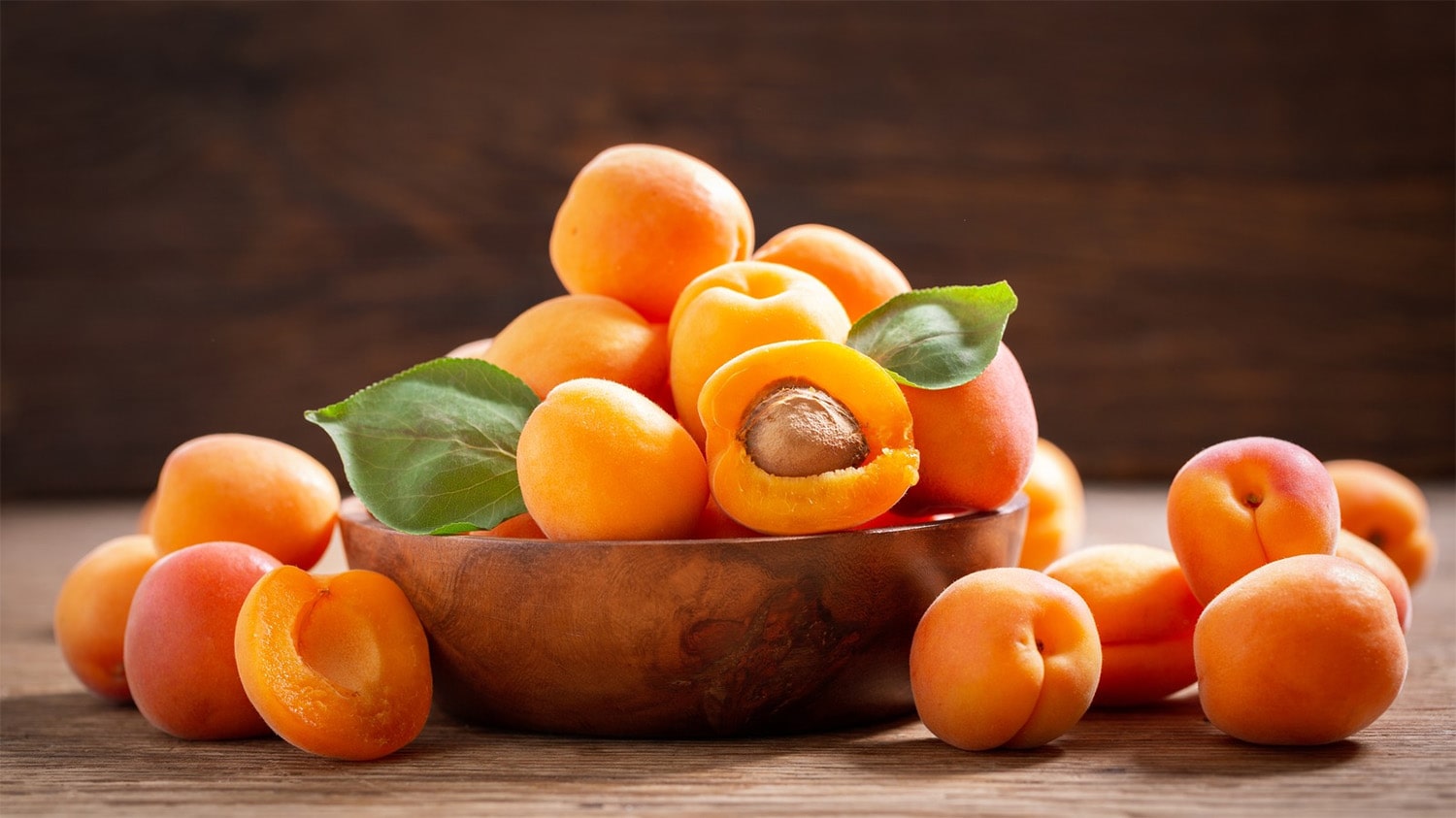
32 interesting facts about Apricot
- 👁️ 402
Apricots, with their golden hue and velvety skin, are not just a delight to the palate but also a storied fruit with a rich history and a multitude of health benefits. These small, flavorful fruits have been cultivated for thousands of years, spanning many cultures and continents. They offer a sweet yet tart taste and are versatile in their culinary uses, from fresh snacks to dried delicacies and even as a vibrant addition to various dishes. Apricots are packed with vitamins, minerals, and antioxidants, making them a nutritious choice for a healthy diet. Here are 32 interesting and informative facts about apricots that shed light on their uniqueness and importance.
- Apricots are originally from China, dating back to 3000 BC.
- They were introduced to the Mediterranean and Europe by the Romans.
- The Latin name for apricot is Prunus armeniaca, indicating Armenia as a significant early cultivation site, although it’s not its place of origin.
- Apricots are members of the Rosaceae family, related to roses, as well as peaches and almonds.
- The fruit thrives in temperate climates, with Turkey, Iran, and Uzbekistan being among the top producers today.
- Apricots are rich in vitamin A, which is crucial for eye health.
- They also provide a good source of vitamin C, fiber, and potassium.
- The seeds, or kernels, of apricots are used to produce apricot kernel oil, which is used in cooking and cosmetics.
- However, apricot kernels contain amygdalin, which can convert into toxic cyanide in the body if consumed in large amounts.
- Dried apricots are a popular snack, offering a more concentrated source of nutrients and sugars than their fresh counterparts.
- The process of drying apricots can cause them to lose some vitamin C but increases their shelf life significantly.
- Apricots have been used in traditional medicine in various cultures to treat inflammatory diseases and infertility.
- They are low in calories, making them a healthy addition to weight loss diets.
- Apricots are often used in desserts, such as pies and jams, or eaten fresh.
- The fruit’s season in the Northern Hemisphere runs from May through August.
- Apricots are self-fertile in most cases, meaning they don’t require cross-pollination to produce fruit.
- California produces about 95% of apricots in the United States.
- Apricots were taken to England in the 13th century by English monks.
- The fruit’s velvety skin comes from tiny hairs that protect it from insects and fungal diseases.
- In Middle Eastern cuisine, apricots are often used in savory dishes, paired with meat like lamb.
- The world’s largest apricot by weight was grown in Armenia, weighing 4.8 ounces (136 grams).
- Fresh apricots contain about 86% water, making them a hydrating fruit choice.
- Apricot trees can produce fruit for 20 to 25 years.
- The color of an apricot’s flesh can range from yellow to deep orange.
- In traditional Chinese medicine, apricot seeds are used to treat respiratory diseases due to their expectorant properties.
- Apricot jam was used by pilots in World War II as a natural cockpit sealant.
- Apricot flowers are pinkish-white and bloom in early spring before the leaves appear.
- The fruit is sometimes confused with peaches and nectarines because of its similar size and color.
- Apricot oil is rich in oleic acid and linoleic acid, beneficial for skin health.
- In Turkey, the apricot’s harvest is celebrated with annual festivals.
- The Hunza people of the Himalayas, known for their longevity, consume apricots regularly.
- Apricot trees are relatively small, reaching heights of about 12 to 15 feet.
Apricots are a testament to nature’s bounty, offering a blend of nutritional goodness, culinary versatility, and a long history of cultivation that spans the globe. Their ability to adapt to various cuisines and uses has made them a beloved fruit in many cultures. The health benefits of apricots, coupled with their delicious taste, ensure they remain a favorite for many. From their origins in ancient China to their widespread popularity today, apricots continue to be a sweet and nutritious choice for those seeking to enrich their diet.
Apricots, with their golden hue and velvety skin, are not just a delight to the palate but also a storied fruit with a rich history and a multitude of health benefits. These small, flavorful fruits have been cultivated for thousands of years, spanning many cultures and continents. They offer a…